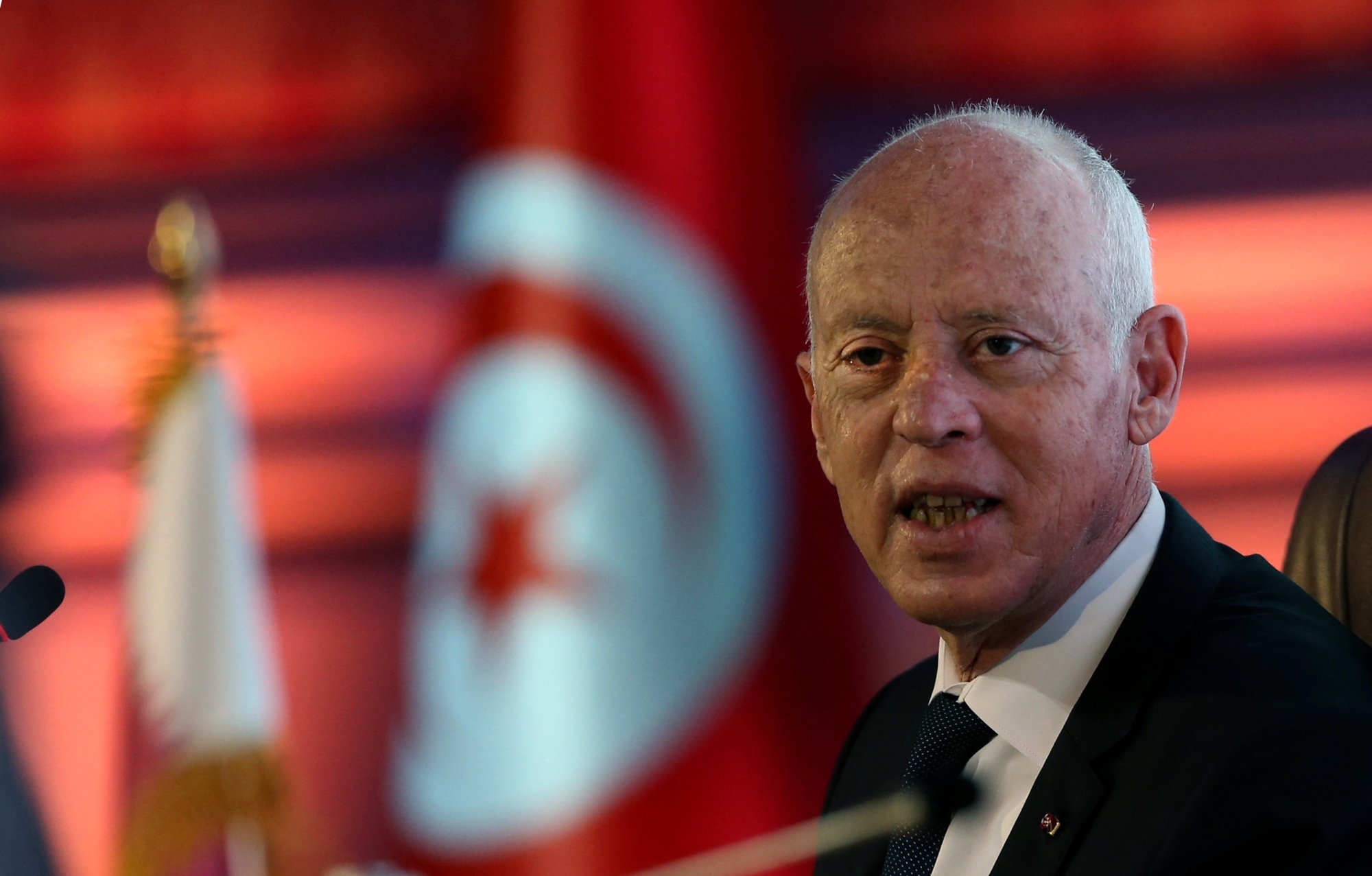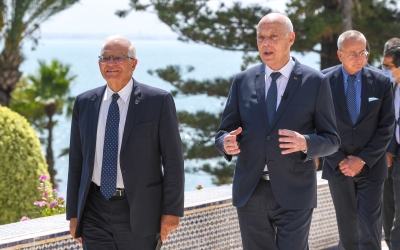Tunisia's President Saied says he plans to amend constitution

Tunisia's President Kais Saied has indicated that he is preparing to change the country's constitution but will only do so using existing constitutional means.
The announcement, made live on television, comes seven weeks after Saied seized governing powers and suspended parliament in moves his rivals have called a coup.
New MEE newsletter: Jerusalem Dispatch
Sign up to get the latest insights and analysis on Israel-Palestine, alongside Turkey Unpacked and other MEE newsletters
The comments represent his clearest statement yet about what he intends to do next, having sworn there was "no going back" to the situation in the North African nation before his intervention on 25 July.
During the televised address, Saied said he respected the 2014 democratic constitution but that it was not eternal and could be amended.
"Amendments must be made within the framework of the constitution," he said.
One of Saied's advisers told Reuters on Thursday that the president was planning to suspend the constitution and offer an amended version via a referendum, prompting opposition from political parties and Tunisia's powerful labour union.
Earlier on Saturday, the moderate Islamist Ennahda, the biggest party in the now-suspended parliament and a key player in successive Tunisian governments, clearly rejected any such move, saying that deviation from the constitution would mean a retreat from democracy.
Anxiety has been growing, both internally and among western democracies that have supported Tunisia's public finances, over Saied's intentions since his 25 July announcement that he was sacking the prime minister and suspending parliament.
A 'constitutional dictatorship'?
The former constitutional law professor justified those moves by citing emergency measures in the constitution that his critics and many legal scholars said did not support his intervention.
In May, MEE reported on a leaked document that came from the office of Saied's chief of staff, Nadia Akacha, proposing the establishment of a "constitutional dictatorship" as a means of dealing with the country's mounting problems.
Though Saied has indefinitely extended the measures he initially said would last for only 30 days, he has yet to appoint a new government or make any clear declaration of his long-term intentions, as Tunisia struggles to confront a rolling economic crisis. Saied did say on Saturday that he was close to naming a new government.
Saied's intervention drew widespread support after years of political paralysis, but it has thrust Tunisia into crisis a decade after it threw off autocracy and embraced democracy in the revolution that triggered a series of uprisings across the region.
Political leaders have complained about the constitution since it was agreed in 2014, calling for it to be changed to either a more directly presidential or a more directly parliamentary system.
Article 144 of the constitution says an amendment to the document can only be put to a referendum if it has already been approved by two-thirds of the parliament, an institution Saied last month called "a danger to the state".
The current parliament was elected in 2019, a week after Saied was elected. He does not have the power to dissolve it and call new elections, but some of the parties in the deeply fragmented chamber have indicated they could do so themselves.
Middle East Eye delivers independent and unrivalled coverage and analysis of the Middle East, North Africa and beyond. To learn more about republishing this content and the associated fees, please fill out this form. More about MEE can be found here.






